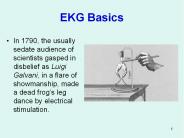Back to Basics - PowerPoint PPT Presentation
1 / 18
Title: Back to Basics
1
Back to Basics
Kin Education Seminar October 26, 2002
2
A Guide to Protocol
3
Opening Ceremonies
Among the opening ceremonies the following should
be included
OCanada
Kinsmen and/or Kinette Song
Kin Grace
Objects and Aims
Toast to the Association
Reply to the Toast
4
The toast
Toast to the Association given by
2nd highest ranking officer of the association
present
Reply to the toast given by
Highest ranking officer of the association present
Toast to the ladies an experienced Kinsmen
Reply highest ranking Kinette officer not
included in above
Toast to the Gentlemen an experienced Kinette
Reply highest ranking Kinsmen officer not
included in above
5
Water not wine, should be used for toasting!
6
When a District Officer (includes Deputy
Governors) is an invited guest, the club shall
A) Ask for a credit card imprint when they arrive
B) Ask them to stay after and do dishes
C) The club shall be responsible for all
necessary expenses of that officer (except
mileage)
7
Flag Etiquette when facing the flags
For three flags,
If there are two or more than three flags,
The Canadian, Ontario and Quebec flags should be
flown at all District 6 functions.
8
Head Table Seating
Audience
Highest Ranking Non-Kin
Guest Speaker
M.C.
9
Introductions Speeches
All officers and dignitaries regardless if they
have been formally invited should be recognized
as being in attendance.
They should be introduced using their full titles
and not acronyms such as D.G. or V.G.
Your Deputy Governor should always be given the
opportunity to speak.
Introduce the speaker briefly, with only enough
biographical material necessary to establish
their credibility.
Thank you the general rule is 3 times. in
public at the podium, in private upon his/her
departure and a letter of thanks the
following day
10
Fines Draws
Guests prospective members, officers of the
Association and guest speakers should not be fined
Members as large sorry your on your own
Draws if you are having a draw each guest show
be presented with a free ticket
11
A Guide to Parliamentary Procedures
12
The Why of Parliamentary Law
- Easier to conduct business if a set of rules is
agreed upon
Basic Principles of Parliamentary Procedures
- Only one subject may claim the attention of the
assembly at one time.
- Each proposition presented for consideration is
entitled to full and free debate
- Every member has rights equal to every other
member.
- The will of the majority must prevail, and the
rights of the minority must be preserved.
13
How it works
1. Once a meeting has been called to order, no
debate shall be allowed unless
there is a motion on the floor that has been duly
moved and seconded.
2. When can a member speak?
Once he/she has been recognized by the chair.
3. A member may interrupt a speaker for
A point of order or a question of privilege
4. What does point of order mean?
Improper language has been used, irrelevant
discussion is taking place or a rule of procedure
has been broken
14
5. Why would a member raise a question of
privilege?
A member feels that their own clubs or the
association's reputation or position is in danger
6. A motion may be amended once it is made.
However the amendment cannot change the intent of
the original motion. There are only 3 ways in
which to amend a motion
- To delete certain words
- To add certain words
- To replace certain word
Once an amendment has been made, the discussion
is only on the amendment. It has to be voted on
first then the discussion reverts back to the
original motion as amended.
7. How many amendments are allowed on the floor
at any time?
2
15
Voting on motions and amendments is done in
reverse order
(a) on the amendment to the amendment or the
second amendment (b) on the amendment then (c)
on the motion or on the motion as amended.
8. After all points have been made , how to the
members indicate that they are ready to vote?
call the Question
9. What does it mean to table a motion?
To table a motion means to stop action on a
pending proposal and to lay it aside indefinitely
or until a proposed time.
To table a motion requires only a simple majority
and is debatable as to time only. If carried, the
motion in question comes up automatically at the
appointed time or, if indefinite as to time, it
remains tabled until such time as another motion
(not debatable) "that the former motion be now
reconsidered" is carried. A simple majority only
is required in this case.
16
The Voting Process
In order to conduct business at any meeting you
must have a
Quorum
which is,
a simple majority of delegates represented either
in person or by proxy
Definition of a delegate A person shall be
deemed to be a delegate if he/she (a) has been
duly appointed a delegate of his/her club at a
regularly constituted meeting or executive
meeting of his/her club, and (b) is an active or
life member in good standing of such club
A delegate at large is
a) A member wanted by the police
b) A current officer of the district, past
Governors and past National Presidents
17
Number of delegate votes Each club shall be
entitled at each national convention and district
convention to be represented by
(a) 2 delegate votes - official membership is
four or less (b) 3 delegate votes - official
membership is five or more, but less than 10 (c)
4 delegate votes - official membership is 10 or
more, but less than 15 (d) 5 delegate votes -
official membership is 15 or more, but less than
20 (e) 6 delegate votes - official membership is
20 or more, but less than 29 (f) 7 delegate
votes - official membership is 29 or more, but
less than 41 (g) 8 delegate votes - official
membership is 41 or more, but less than 56 (h) 9
delegate votes - official membership is 56 or
more, but less than 76 (i) 10 delegate votes -
official membership is 76 or more
If your club cannot be in attendance, it (the
club) may choose to proxy its vote
How many delegate votes is your club entitled to
by proxy?
one
Delegates at Large are entitled to one vote and
cannot proxy their vote.
18
There are 3 types of voting that can take place.
Straw vote - show of hands
Poll vote - mean a recorded vote of the
accredited delegates and accredited
delegates-at-large, each of whom shall be allowed
to exercise his/her vote as well as the proxy
votes which he/she carries.
Ballot vote - a secret vote of the accredited
delegates and accredited delegates-at-large, each
of whom shall be allowed to exercise his/her own
vote as well as the proxy votes which he/she
carries.
When does the chair vote?
Normally the chair does not vote, except in the
case of a tie. He/she generally explains his
reason for voting the way he/she does and
customarily votes against a motion on the premise
that, if half the members are opposed, the matter
should not be forced upon them.
Adjournment A motion to adjourn may be moved at
any time. It is not debatable except if its
intent is to adjourn to a time other than the
next regular meeting time































